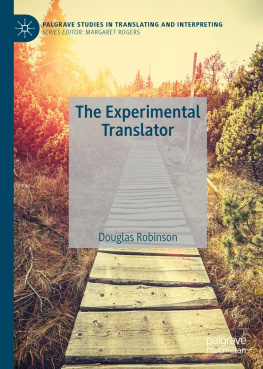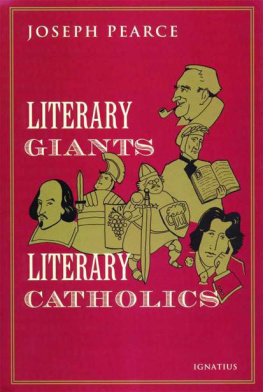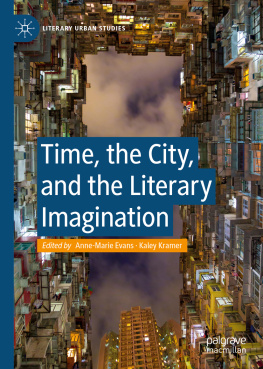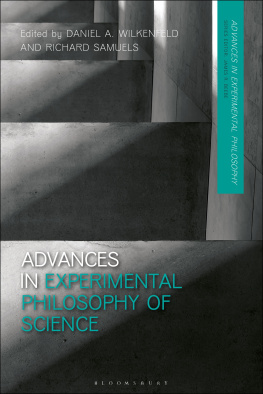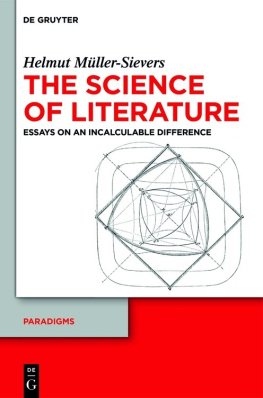THE EXPERIMENTAL IMAGINATION
Literary Knowledge and Science in the British Enlightenment
TITA CHICO
Stanford University Press
Stanford, California
Stanford University Press
Stanford, California
2018 by the Board of Trustees of the Leland Stanford Junior University. All rights reserved.
No part of this book may be reproduced or transmitted in any form or by any means, electronic or mechanical, including photocopying and recording, or in any information storage or retrieval system without the prior written permission of Stanford University Press.
Printed in the United States of America on acid-free, archival-quality paper
Library of Congress Cataloging-in-Publication Data
Names: Chico, Tita, 1970 author.
Title: The experimental imagination : literary knowledge and science in the British Enlightenment / Tita Chico.
Description: Stanford, California : Stanford University Press, 2018. | Includes bibliographical references and index.
Identifiers: LCCN 2017050808 (print) | LCCN 2018002879 (ebook) | ISBN 9781503606456 | ISBN 9781503605442 (cloth :alk. paper)
Subjects: LCSH: Literature and scienceGreat BritainHistory18th century. | Knowledge, Theory ofGreat BritainHistory18th century. | English literature18th centuryHistory and criticism. | EnlightenmentGreat Britain. | Imagination.
Classification: LCC PR448.S32 (ebook) | LCC PR448.S32 C55 2018 (print) | DDC 820.9/36dc23
LC record available at https://lccn.loc.gov/2017050808
Cover design: John Barnett, 4 Eyes Design
To Dr. Beverly Berghaus Chico, my mother
CONTENTS
ACKNOWLEDGMENTS
A book such as this depends on research libraries and the resources to access them. I have been very lucky on both counts. I wish to thank the librarians at the British Library, the Bodleian Library, the Wellcome Library, the Folger Shakespeare Library, the Library of Congress, the New York Public Library, the Huntington Library, and the Newberry Library. Pat Herron of the University of Maryland Library deserves special appreciation.
My scholarship has been supported by a range of fellowships that have given me valuable time away from teaching, including the Visiting Fellowship at Chawton House Library and Research Centre; the Visiting Research Fellowship in the Institute of English Studies at the School for Advanced Study, University of London; the Research and Scholarship Semester Award from the University of Maryland; the ASECS/Andrew W. Mellon Foundation Research Fellowship at the Harry Ransom Center; the University of Maryland General Research Board Semester Award; and a Grant-in-Aid from the Folger Institute. The University of Marylands College of Arts and Humanities ADVANCING Scholarship Initiative, along with the Department of English, provided funding for my manuscript workshop, which was invaluable.
I have had the great fortune to share my work with colleagues in the United States and Britain at numerous conferences, including the American Society for Eighteenth-Century Studies, the British Society for Eighteenth-Century Studies, the Society for Literature, Science, and the Arts, and the Modern Language Association. I am grateful to audience members at various institutions for considering my work with such care and consideration, including the University of York Centre for Eighteenth-Century Studies, Georgetown University, Chawton House Library and Research Centre, Birkbeck College/University of London, the University of Illinois, Queen Mary University of London, the Foundling Museum, the University of Warwick, Columbia University, Southern Methodist University, the Folger Institute, the CUNY Graduate Center, the University of Pennsylvania, the University of Colorado-Boulder, Tufts University, the Center for Eighteenth-Century Studies at Indiana University, and the University of Oklahoma. These conversations made my work sharper and stronger.
Three people read the entire manuscript, one of them twice: Laura Brown (twice!), Bob DeMaria, and Jonathan Kramnick. They saw what my book as a whole could do and helped me figure out how I could do it. I will be forever grateful for their guidance. I am also thankful for the friends who responded to sections of my book: Toni Bowers, Kandice Chuh, Lisa Freeman, Suvir Kaul, Kathy Lubey, Ruth Mack, Bob Markley, Megan Kate Nelson, Nush Powell, Cristobal Silva, Courtney Weiss Smith, Alok Yadev, and Chi-ming Yang.
At the University of Maryland, I have brilliant, insightful colleagues, and I thank several for reading chapters and talking with me extensively over the years: Ralph Bauer, Chuck Caramello, Maud Casey, Bill Cohen, Theresa Coletti, Kim Coles, Jane Donawerth, Oliver Gaycken, Michael Israel, Matt Kirschenbaum, Ted Leinwand, Bob Levine, Zita Nunes, Randy Ontiveros, Jerry Passannante, Carla Peterson, Sangeeta Ray, Kellie Robertson, Laura Rosenthal, Jason Rudy, Mary Helen Washington, Christina Walter, and Orrin Wang. My chairs, Kent Cartwright, Bill, and Amanda Bailey, have been unflagging in their support. Karen Nelson heroically read the final draft, improving it greatly with her keen editorial eye. Jonathan Williams read the proofs with his characteristic care. My graduate and undergraduate students at the University of Maryland enliven me with their intelligence and creativity. I thank them for taking up the difficulties of true thinking.
I also thank the many friends with whom I have conversed about this book, our collective work, and the futures of intellectualism, politics, and the humanities: Dave Alff, Misty Anderson, Jennie Batchelor, Luisa Cal, David Clark, Lucinda Cole, Alison Conway, Helen Deutsch, Carolyn Dever, Tom DiPiero, Gillian Dow, Markman Ellis, Rod Ferguson, Lynn Festa, Dustin Griffin, Anita Guerrini, Donna Heiland, Laura Kang, Joanne Long, Devoney Looser, Tina Lupton, Elaine McGirr, Lisa Moore, Melissa Mowry, Danny OQuinn, Mary Poovey, Joe Roach, Slaney Chadwick Ross, Sean Silver, Chloe Wigston Smith, Siobhan Somerville, Kristina Straub, Rajani Sudan, David Taylor, Helen Thompson, Cindy Wall, and Gena Zuroski.
Emily-Jane Cohen of Stanford University Press is the editor we all want: rigorous, reasonable, and smart. It has been a pleasure to work with her. Faith Wilson Stein offered me impeccable editorial advice as I prepared the final manuscript. I thank them both deeply. I am also grateful for the assistance from Tim Roberts, Beverly Miller, and Stephanie Adams.
My life was very different when I began this book, but it also remains profoundly the same, a world made up of loving connections. In Alyssa Alston, Isabel Borland, Toni, Bill, Lisa F., Daryle and Steven Fretwilliams, Nicole King, Matt K., Carla, Cristobal, Gita Panjabi Trelease, and Randy Trumbach, I find deep support and care. With Filiz Turhan, Robin Peck, Zita, Kandice, and Megan, I have sister-like friendships. These women have astounding hearts and minds, and they embrace me with happiness and love. Plus, we laugh a lot.
And my family. My father, Raymundo Jos Lorenzo Chico, has accomplished so much and has taught me about research, commitment, and independence. My brother, Greg Chico, lovingly cares for me as he has my whole life: he reads my work, fixes up my homes, and counsels me on the finer, mundane, and ridiculous things of life. I am also so deeply happy that Adam Martinez, my brother-in-law, is now family. Matt Chico, my brother, and Laura Shipler Chico, my sister-in-law, gave me a soft landing in London while I drafted this book. Their love and compassion, the countless dinners, conversations, and special outings were exactly what I needed and wanted. I have a home in theirs, in all ways. My nephews, Ben and Dylan Chico, bring me joy; I adore being their aunt and cherish seeing everything anew with them. I thank Toms, Nico, Sebastian, and Florencia Foxley for their affection and the fun we have together. Alex Foxley recognized me the moment we metit left me breathless then, and still does. I thank him for his love, kindness, and humor.
Next page

